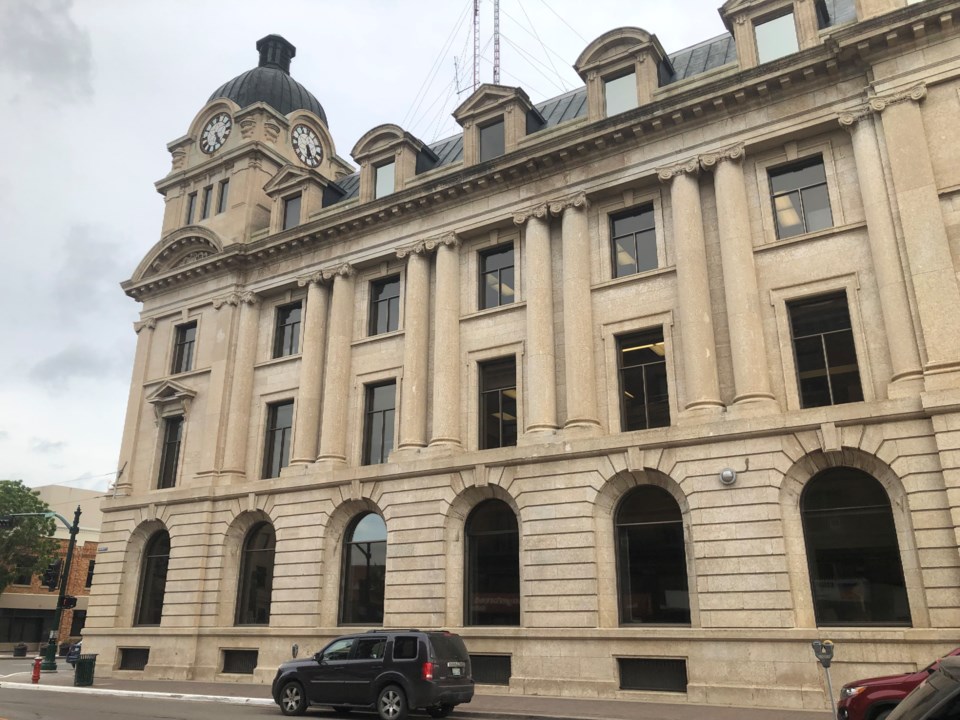The City of Moose Jaw could lose millions in revenue depending upon how long the pandemic lasts, but city administration is hesitant to provide hard projections for any short- and long-term scenarios.
The coronavirus pandemic could affect up to $66.7 million in total annual budgeted revenue, with taxation and utility revenues the hardest hit since portions would become uncollectable, said a report presented during the April 13 regular city council meeting.
“The uncertainty around the pandemic’s timing makes it very difficult to estimate potential revenue losses,” said city manager Jim Puffalt. “This is because the length of the pandemic will directly affect the amount of revenue losses. We are attempting to model some of these potential shortfalls, but those models are changing on a nearly daily basis.”
The worst-case scenario would see millions of revenue dollars lost from the operating and capital budgets if the shutdown continues until Dec. 31, he continued. If the pandemic subsides by June, the best-case scenario would see less than $1 million lost.
The Moose Jaw Express asked city hall if an actual figure or projection of revenue losses could be provided. Finance director Brian Acker responded in an email, via communications manager Craig Hemingway.
“The biggest variable in any estimate that the city produces is the amount of taxes and utility billings that may become uncollectible. Given, this is something that will be directly impacted by how long the pandemic shutdown lasts (longer will have more impact) and how much our citizens and businesses are impacted,” Acker wrote.
“Ultimately, the financial condition of our citizens and businesses directly impacts their ability to pay their taxes and utility billings and at this point, which is still early on in the pandemic, speculating on these amounts would in all likelihood turn out to be inaccurate and really serve very little purpose.”
Acker then referred the Express back to the statement about best-case and worse-case scenarios.
Expense reductions
City administration expects to find savings of $3.1 million in more than a dozen areas, Puffalt told council, such as:
- Temporarily redeploying streets and roads staff: $249,633
- Fewer repairs of water main breaks: $165,1124
- Reduced transit services: $337,500
- Stoppage of parking enforcement fines: $161,250
- Vacant positions remaining empty: $300,000
- Closure of outdoor pool: $166,176
- Reduction in sports field maintenance: $156,846
- Closure of municipal-owned recreational buildings: $488,600
The $3.1 million figure is the estimated savings if these measures remain until December, Acker explained in an email. Currently, the municipality is saving about $250,000 a month with restrictions in place; another $975,000 is being saved in specific summer work and programs that might not be possible or feasible.
Mitigation strategies
The municipality’s capital budget mitigation strategy focuses on three areas, Puffalt told council:
- Project priority: crucial projects such as water supply, sewer services, and those with safety implications are rated highest
- The project’s short-term cash flow implications: a project’s cash needs in the next six months and ways to minimize the needs are considered
- Effect on local contractors: where possible, a project will be considered a priority if it can benefit hard-hit community contractors
Major projects
City administration had budgeted $82 million this year on equipment purchases and capital projects in the engineering and parks and recreation departments; up to 90 per cent was expected to be spent. However, administration recommended that several projects valued at $29.3 million be delayed or deferred.
This would leave about $36.5 million to be spent on priority projects, such as cast iron water main replacement and electrical upgrades at the Buffalo Pound Water Treatment Plant. About $19.9 million can be funded from current cash flows.
Council later unanimously approved a motion to adopt the report’s financial measures; that municipalities need financial assistance from the provincial and federal governments; that parking meter fees be waived effective April 14; and that city administration ask third-party groups that receive municipal funding to reduce expenses as they can.
The next regular council meeting is Monday, April 27.




